











Read More
The Bachelor of Dialysis Technology program provides a comprehensive foundation in renal anatomy, physiology, kidney diseases, and patient care, complemented by extensive clinical placements within hospital premises. Through hands-on experience, students become proficient in conducting hemodialysis and peritoneal dialysis for individuals with end-stage kidney disease or acute kidney injury. Clinical immersion takes place in Downtown Hospital's dialysis unit and various intensive care units, following a structured schedule. Graduates are well-prepared for employment in private and public hospitals, as well as dialysis units, where they manage equipment maintenance and administer dialysis treatments both in clinical settings and at patients' residences. Additionally, opportunities for further academic advancement, such as pursuing MSc, MPhil, or PhD studies, are available to graduates.
Year wise Course Details
Courses for this semester
The Clinical Dialysis course provides an in-depth understanding of dialysis treatment for patients with kidney failure, covering the theoretical knowledge and practical skills required to perform hemodialysis and peritoneal dialysis. This course focuses on the clinical, technical, and patient care aspects essential for dialysis technologists, emphasizing safety protocols, machine handling, and patient monitoring during dialysis procedures.
The "Basic Principles of Patient Practice and Patient Care" course introduces foundational concepts and skills essential for effective patient care in healthcare settings. It focuses on understanding patient needs, mastering basic clinical skills, and learning safe and compassionate care practices. Students will develop proficiency in fundamental patient assessment, communication, hygiene, and monitoring skills necessary for providing high-quality care.
Biochemistry is the study of the chemical processes that occur within living organisms. This course provides foundational knowledge in biochemical principles, focusing on the structure, function, and interactions of biomolecules essential to life. Topics include the properties of amino acids, proteins, enzymes, carbohydrates, lipids, and nucleic acids, as well as metabolic pathways, energy production, and regulatory mechanisms. Designed for students in healthcare, life sciences, and medical programs, this course integrates theoretical understanding with laboratory practice to explore the molecular basis of health and disease. By understanding these biochemical pathways and molecules, students will be equipped to apply these concepts in various scientific and clinical contexts.
This course offers an introduction to psychology, covering its history, significance, and main branches. Students will explore the biological foundations of behavior, human growth and development, and key concepts in motivation, emotion, and stress. The course emphasizes skills for assessing mental health, recognizing signs of psychological distress, and managing stress and conflict effectively. By the end of the course, students will have a foundational understanding of human behavior and the tools to promote mental wellness in personal and professional settings.
This course promotes physical fitness, sports skills, and lifelong health habits. Students will improve strength, stamina, and flexibility, participate in club activities, and represent ADTU in various competitions. Through workshops and expert guidance, students will build proficiency in sports techniques, rules, and strategies for effective performance in practice and competition.
The course also provides opportunities for students to represent Assam Downtown University (ADTU) at inter-university, state, and national competitions. Learning from invited experts, students will refine sport-specific skills, gain a deeper understanding of game rules, and build strategic abilities for effective performance in both practice and competitive environments. This well-rounded approach encourages teamwork, discipline, and a commitment to lifelong physical activity.
This course provides a foundational understanding of human anatomy and physiology, covering essential structures and functions of cells, organs, and organ systems. It aims to build a comprehensive understanding of the human body from cellular composition to the complex organ systems that maintain life processes.
Courses for this semester
Human Anatomy and Physiology II delves into the structure and function of the human body's organ systems, including the cardiovascular, respiratory, digestive, urinary, and reproductive systems. The course builds upon foundational knowledge from the first part of the series, offering a deeper understanding of how these systems interact and maintain homeostasis. It combines theoretical learning with practical applications to prepare students for advanced study in health and medical fields.
Biochemistry: Biomolecules and Their Metabolism focuses on the molecular composition, structure, and function of key biomolecules such as proteins, lipids, carbohydrates, and nucleic acids. The course delves into the metabolic pathways and processes that govern cellular functions, energy production, and regulation within living organisms. It provides a comprehensive understanding of how these biomolecules interact and contribute to maintaining physiological balance and supporting health.
Fundamentals of Patient Care and Safety provides essential knowledge and skills required for delivering safe, effective, and compassionate care to patients. The course focuses on the core principles of patient safety, infection control, patient assessment, and ethical practices in healthcare. Students will learn how to identify potential risks, promote patient well-being, and provide high-quality care in various healthcare settings.
This course aims to provide holistic development opportunities for teacher trainees by engaging them in diverse co-curricular and extracurricular activities. Through participation in academic, cultural, and social initiatives, as well as sports and value-based programs, trainees will develop intellectual, social, emotional, and ethical competencies. The course fosters a well-rounded personality equipped with skills for personal and professional excellence.
Courses for this semester
Pathology is the scientific study of the disease. It's help in the scientific study of the molecular, cellular, tissue or organ system response to injurious agents
This course provides a continuation of the study of the properties, effects, and therapeutic value of the primary agents in the major drug categories.
Applied anatomy is the study of the structure of the human body. Understanding the organs, and their structure and correlating it with their physiology leads to an approach that can help the clinician to understand the disease properly for its prevention and treatment.
Applied biochemistry theory imparts knowledge in technical aspects of biochemical studies, especially focusing on clinical findings in various body fluids
Physiology helps to understand the mechanisms that work to keep the human body alive and functioning. Applied physiology provides the applied understanding of the physiological basis of all in the body system and how this impacts the function in the presence and absence of Pathology.
This course gives you easy access to the invaluable learning techniques used by experts in art, music, literature, math, science, sports, and many other disciplines. We’ll learn about how the brain uses two very different learning modes and how it encapsulates (“chunks”) information. We’ll also cover illusions of learning, memory techniques, dealing with procrastination, and best practices shown by research to be most effective in helping you master tough subjects. Using these approaches, no matter what your skill levels in topics you would like to master, you can change your thinking and change your life. If you’re already an expert, this peep under the mental hood will give you ideas for turbocharging successful learning, including counter-intuitive test-taking tips and insights that will help you make the best use of your time on homework and problem sets. If you’re struggling, you’ll see a structured treasure trove of practical techniques that walk you through what you need to do to get on track. If you’ve ever wanted to become better at anything, this course will help serve as your guide.
We all negotiate on a daily basis. On a personal level, we negotiate with friends, family, landlords, car sellers and employers, among others. Negotiation is also the key to business success. No business can survive without profitable contracts. Within a company, negotiation skills can lead to your career advancement.
Co-curricular activities are activities that take place outside of the classroom to supplement and enrich a student's academic learning. They can help students develop skills, build community, and stay engaged in academics.
Extracurricular activities encompass a wide range of pursuits that students can engage in beyond their regular academic curriculum. These can include sports, arts, music, drama, debate, community service, and various clubs or organizations.
Courses for this semester
Nutrition on Dialysis emphasizes the critical role of dietary management in the care of patients undergoing hemodialysis and peritoneal dialysis. The course covers nutritional assessment, individualized diet planning, and the management of complications related to renal diets. It equips students with the skills to optimize patient health through evidence-based nutritional strategies.
Applied Pharmacology focuses on the principles of drug action, pharmacokinetics, and pharmacodynamics, with an emphasis on medications used in dialysis and renal care. The course covers drug interactions, dosage adjustments in renal impairment, and patient-specific medication management. It prepares students to optimize pharmacological therapy for improved patient outcomes in clinical practice.
The Concept of Renal Disease provides an in-depth understanding of the pathophysiology, classification, and progression of renal disorders. The course explores common kidney diseases, their clinical manifestations, diagnostic approaches, and management strategies. It equips students with the knowledge to support patients and contribute to the prevention and treatment of renal conditions.
The "Basics of Dialysis Technology" course provides foundational knowledge and skills for healthcare professionals and technicians specializing in renal replacement therapies. The course is designed to familiarize students with the principles, techniques, and equipment used in dialysis treatments, focusing on patient care, safety, and the operational aspects of dialysis systems. Students will gain both theoretical knowledge and practical training to effectively assist in the management of patients with end-stage renal disease (ESRD).
This comprehensive course delves into the pathophysiology, clinical implications, and management of kidney diseases and their intricate relationship with hypertension. By exploring key aspects of renal health, participants will develop the expertise required for effective diagnosis, management, and therapeutic interventions.
Applied Dialysis Technology is a specialized course designed to equip students pursuing a Bachelor of Science (B.Sc.) degree in Dialysis Technology with the knowledge and skills required to administer and operate dialysis equipment effectively. The course focuses on the practical application of dialysis principles, techniques, and technologies used in the treatment of patients with renal (kidney) disorders. Students will gain a comprehensive understanding of various dialysis modalities, including hemodialysis and peritoneal dialysis, and their significance in managing renal failure patients.
This course will prepare the students to become trained dialysis technician by imparting a detailed knowledge on the working principles of a hemodialysis apparatus and its structure. The course will also enable the students to practically set up a hemodialysis apparatus through priming, initiate the dialysis procedure through the different vascular access and closing of the dialysis.
This course aims to provide holistic development opportunities for teacher trainees by engaging them in diverse co-curricular and extracurricular activities. Through participation in academic, cultural, and social initiatives, as well as sports and value-based programs, trainees will develop intellectual, social, emotional, and ethical competencies. The course fosters a well-rounded personality equipped with skills for personal and professional excellence.
Courses for this semester
This course is designed to provide an advanced understanding of the principles, techniques, and technologies involved in dialysis treatment. Building on the foundational knowledge of dialysis, this course explores complex dialysis therapies, clinical management of various patient populations, and the application of advanced technology in dialysis. Students will gain in-depth insights into managing dialysis in special cases, including those involving coexisting conditions, and will develop skills to handle complications that may arise during treatment.
This course provides in-depth knowledge of the dialyzer, one of the most critical components in the dialysis process. The course covers the design, functionality, and selection criteria for dialyzers used in hemodialysis, as well as the principles of solute clearance and membrane technology. Students will also explore the clinical aspects of using dialyzers, including patient-specific considerations, reprocessing techniques, and how to troubleshoot common dialyzer-related issues.
The Clinical Dialysis course focuses on equipping students with the practical skills and clinical knowledge required to provide comprehensive care for patients undergoing dialysis. The course covers the principles of renal replacement therapy, patient assessment, clinical management, and the handling of dialysis equipment in real-world clinical settings. Students will learn to evaluate, manage, and care for patients with acute and chronic kidney failure, ensuring safe and effective dialysis treatment.
The Basic Life Support (BLS) course provides essential training for healthcare providers and first responders to manage emergencies involving cardiac arrest, respiratory distress, or airway obstruction. This course emphasizes the critical steps needed to save lives, including early recognition of cardiac arrest, prompt activation of emergency response systems, high-quality cardiopulmonary resuscitation (CPR), and the use of an automated external defibrillator (AED). Participants will gain hands-on experience and the confidence needed to respond effectively in life-threatening situations, making this course vital for anyone in the medical or public safety fields.
This course is designed to enhance students' overall development by engaging them in various co-curricular activities that complement academic learning. It aims to improve leadership skills, teamwork, creativity, communication, and personal growth. Through participation in group discussions, presentations, sports, cultural events, research projects, and community service, students will develop a holistic approach to learning, preparing them for professional and social challenges.
In order for coaching to be most effective, it’s important that there is strong culture of coaching and accountability which you will learn how to incorporate into your one-on-one meetings in this course. We’ll discuss strategies in coaching great employees who are highly motivated, consistent performers, and poor performers. We’ll explore specific tools, such as a coaching agenda, you can employ immediately in your coaching conversations. You will learn how to use the "Coaching Algebra" technique in typical performance scenarios managers encounter. Finally, you’ll walk away from this course with some concrete strategies on how to coach other coach-managers.
Applied Dialysis Technology I introduce students to the fundamental principles of dialysis, focusing on the technology and techniques involved in the management of patients requiring renal replacement therapy. This course covers essential topics, including the physiology of the kidney, basics of hemodialysis, dialysis equipment, water treatment systems, and the roles and responsibilities of dialysis technicians. Students will gain a solid foundation in patient care, machine operation, and monitoring, preparing them to work safely and effectively in a dialysis setting.
Courses for this semester
Applied Dialysis Technology III focuses on advanced principles and techniques in renal replacement therapy, including troubleshooting dialysis equipment and managing patient-specific complications. It emphasizes the integration of clinical knowledge with practical skills to ensure optimal patient care during hemodialysis and peritoneal dialysis. This course prepares students to address challenges in dialysis settings through critical thinking and evidence-based practices.
Renal Transplant explores the principles, procedures, and post-operative management of kidney transplant patients. The course covers donor selection, surgical techniques, immunosuppression protocols, and the prevention of transplant rejection. It equips students with the knowledge and skills to support patients through the transplant process and ensure long-term graft success.
Medical Ethics and Relevant Medico-Legal Aspects provides an understanding of ethical principles and their application in clinical practice, including patient autonomy, confidentiality, and informed consent. The course also addresses medico-legal responsibilities, legal documentation, and the handling of disputes in healthcare settings. It prepares students to navigate ethical dilemmas and legal challenges while maintaining professional integrity and patient-centered care.
Dialysis Practice provides a comprehensive understanding of the operational, clinical, and technical aspects of hemodialysis and peritoneal dialysis. The course emphasizes patient care, troubleshooting dialysis equipment, and managing complications associated with renal replacement therapy. It equips students with the skills and knowledge to deliver high-quality care to dialysis patients in diverse clinical settings.

CST- Common scholarship test is a national and international level online MCQ based examination funded for intellectual empowerment by Assam down town University.
CST- Maximum enrolment each year is 269 seats and any 10+2 students can apply. Adtu is northeast India’s first placement driven university to provide 100% scholarship benefits worth 30 cr.
CST aims to inspire brilliant and competent students to pursue further education. Accredited with a prestigious grade by NAAC, UGC and AICTE.
Explore more scholarships that can help you reach out your goal with financial aid.
This scholarship is valid on the basis of the board/university examination
| 95% & above | 100% Scholarship on all semester |
| 90%-94.9% | 50% Scholarship on all semester |
| 80%-89.9% | 25% Scholarship on all semester |
This scholarship is valid on the basis of the board/university exam
| National & International Level | 100% Scholarship on all semester |
| State Level | 50% Scholarship on all semester |
| District Level | 25% Scholarship on all semester |
This scholarship is valid on the basis of the board/university exam
| National & International Level | 100% Scholarship on all semester |
| State Level | 50% Scholarship on all semester |
| District Level & NCC Certificate Holder | 25% Scholarship on all semester |
Discover a multitude of world-class amenities and cutting-edge resources at Assam down town University, enhancing your academic journey to new heights.
The Start-Up & Incubation Centre at Assam down town University provides a supportive environment for young entrepreneurs to develop and grow their business ideas. The center provides mentorship, funding, and networking opportunities to help innovative ideas become successful businesses.
SFURTI scheme to support rural entrepreneurs and innovators, an initiative by the Ministry of MSME
TIDE 2.0 scheme for ICT-based startups which provides a grant of Rs. 4L and Rs. 7L under EiR and Grant categories respectively, an initiative by the Ministry of MeitY.
dtVL Ideation, an incubation program for early-stage entrepreneurs with a market-ready solution/product, offering interest-free loans up to Rs. 2 lakhs.
Sprout UP, an incubation program for students, faculties, and researchers with innovative business ideas, prototypes, or technology solutions.














.jpg)
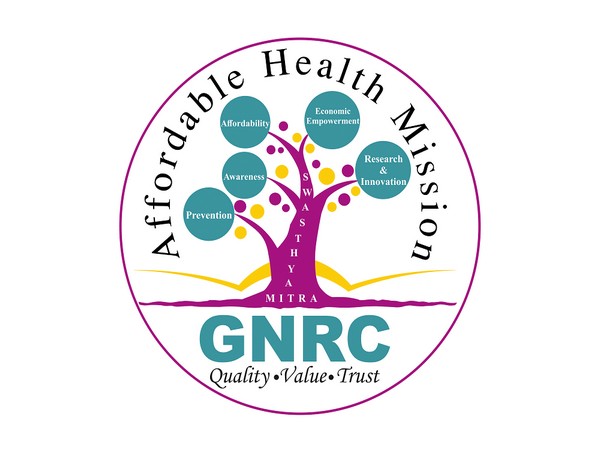
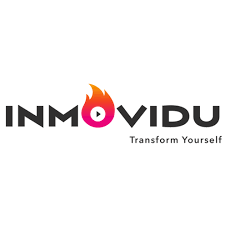














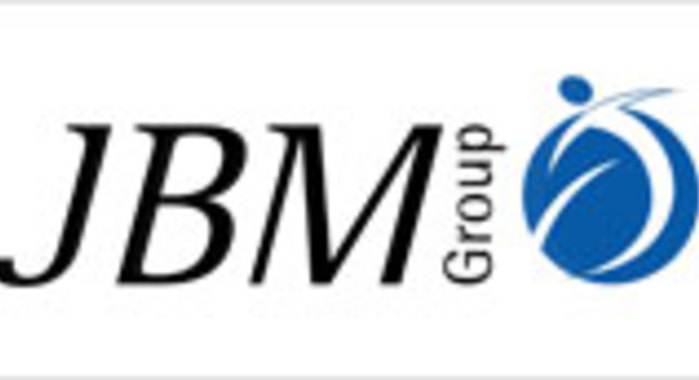















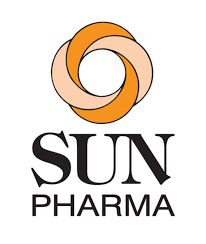
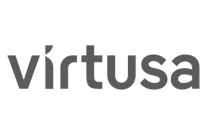

"I am a BBA student of 3rd semester. I hail from Bhutan. I vow that I am having a great experience i...
"AdtU is amazing. I am a BBA student of 2019-22 batch and I am just grateful for the amount of oppor...
Let us be grateful to the people and place who makes us happy. They are the charming gardeners whom ...
Currently I am pursuing MBA in Assam Down Town University. MBA is the professional course through wh...
AdtU is a university that focuses on giving knowledge, education and simultaneously making the stude...
The Assam downtown University has been a great learning experience. The university has provided me w...
My experience with AdtU has been splendid one indeed. Little needs to said about its scenic infrastr...
As a student I am very glad that I have got an opportunity to study here in Assam downtown universi...
My name is Sakhyajit Roy. I?m from Tripura. I joined the university on Auguest, 2017 as a student of...
I share immense pleasure to share my post graduate program experience in Assam down town University....
AdtU is a platform where I got golden opportunities to feed my zeal for knowledge through the dynami...
I am fortunate to get an opportunity to study here in Assam Downtown University. The best thing abou...
Our university is one of the best place for developing ourselves in the field of research and acedem...
ADTU is a university that is very good interms of infrastructure, academics and placements. Our tea...
It is one of best private colleges in North East India, it also provides a good environment for ed...
ADTU is a good University which provides the students with best quality lectures and ensures comfort...
The environment of Assam downtown university is very pleasant.The department of BMLT is very good a...
The university has all the necessary facilities and amenities for students . The classrooms and the ...
Assam downtown University is well recognised all over india. In the ongoing pandemic situation it ha...








